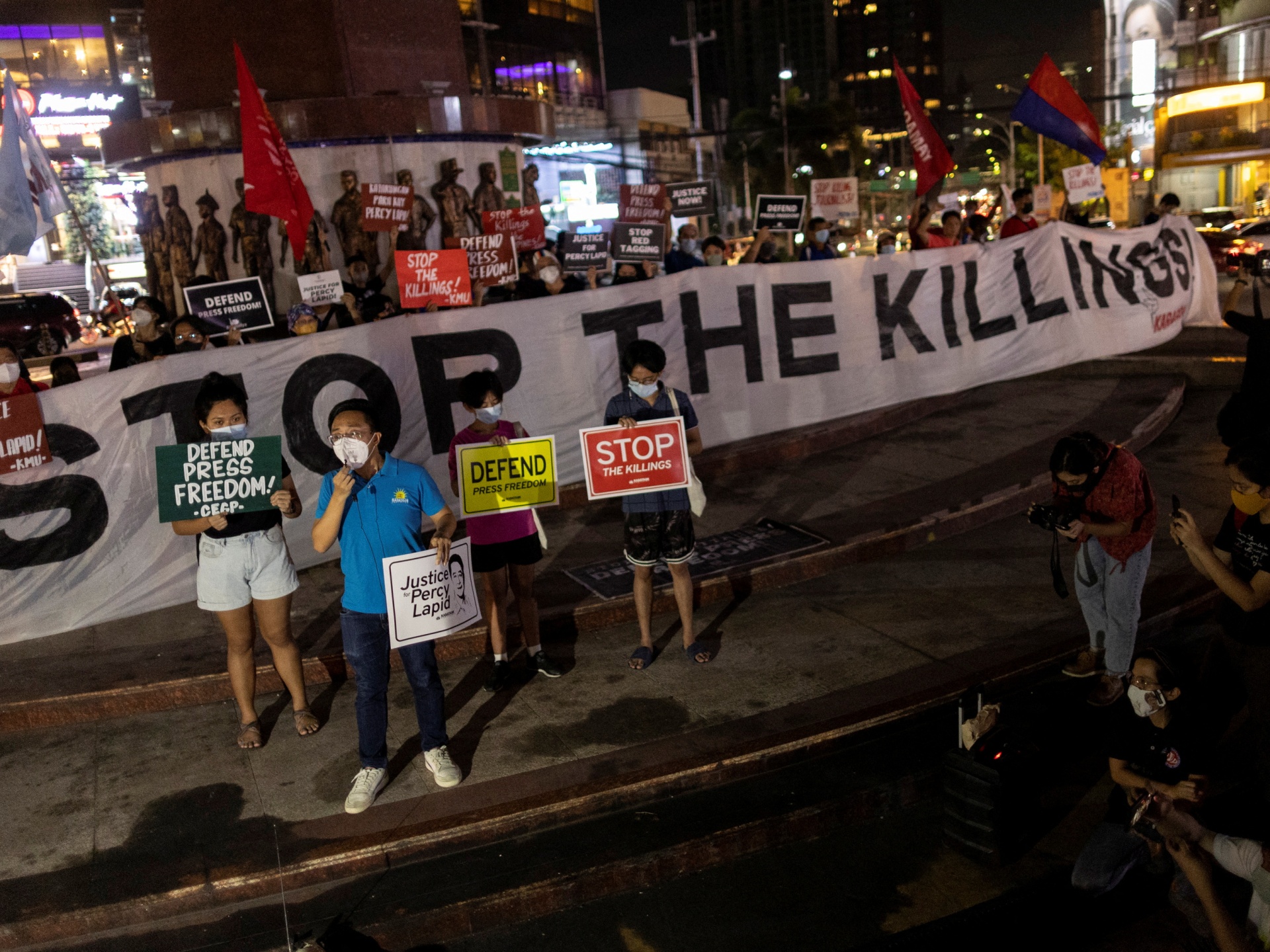A Reporters Without Borders report says the last two decades have been ‘especially deadly’ for journalists.
Nearly 1,700 journalists have been killed worldwide over the past 20 years, an average of more than 80 a year, according to an analysis published by Reporters Without Borders (RSF).
The two decades between 2003 and 2022 were “especially deadly decades for those in the service of the right to inform”, said the Paris-based media rights campaigners.
“Behind the figures, there are the faces, personalities, talent and commitment of those who have paid with their lives for their information gathering, their search for the truth and their passion for journalism,” RSF secretary-general Christophe Deloire said.
The report comes seven months after Shireen Abu Akleh, a television correspondent with Al Jazeera for 25 years, was killed by Israeli forces while she was covering an Israeli military raid on a refugee camp in Jenin in the occupied West Bank. In all, 12 Al Jazeera journalists have been killed on the front lines.
Iraq and Syria are the most dangerous countries for journalists
Iraq and Syria were the most dangerous countries to work as a journalist, accounting for “a combined total of 578 journalists killed in the past 20 years, or more than a third of the worldwide total”, RSF said.
They are followed by Mexico (125 killed), the Philippines (107), Pakistan (93), Afghanistan (81) and Somalia (78). The report also stated that 80 percent of the media deaths have occurred in 15 countries.
The “darkest years” were 2012 and 2013, “due in large measure to the war in Syria”. There were 144 killings in 2012 and 142 the year after, the report said.
This peak was “followed by a gradual fall and then historically low figures from 2019 onwards”.
Vladimir Putin’s deadly influence
Deaths increased again in 2022, in part because of the war in Ukraine. So far this year, 58 journalists have been killed doing their jobs, up from 51 in 2021.
Eight journalists have been killed in Ukraine since Russia launched a full-scale invasion of the country on February 24. This compares with a total of 12 media deaths in the country over the preceding 19 years.
Ukraine is currently the most dangerous country in Europe for the media, after Russia itself, where 25 journalists have been killed over the past 20 years.
“Since (President) Vladimir Putin took over, Russia has seen systematic attacks on press freedom – including deadly ones,” the rights group said. “They include Anna Politkovskaya’s high-profile murder on 7 October 2006.” Politkovskaya was a fierce critic of Putin and had exposed high-level corruption in the country. She was shot four times in her apartment block after returning home from buying groceries.
The Americas remain the deadliest continent for journalists
Reporters run the greatest risks worldwide in areas where armed conflict has occurred.
But, RSF stressed, “countries where no war is officially taking place are not necessarily safe for reporters and some of them are near the top of the list of those where killings have occurred”.
“In fact, more journalists have been killed in ‘zones at peace’ than in ‘zones at war’ during the past two decades, in most cases because they were investigating organised crime and corruption.”
The Americas accounted for almost half of the journalist murders, with Mexico, Brazil, Colombia and Honduras responsible for most of the deaths.
“America is nowadays clearly the world’s most dangerous continent for the media,” RSF said.
